“I know of some of my colleagues who are considering taking out loans to buy more fuel efficient cars, like hybrids or EVs... It feels like what we’re doing is subsidising our own jobs.”
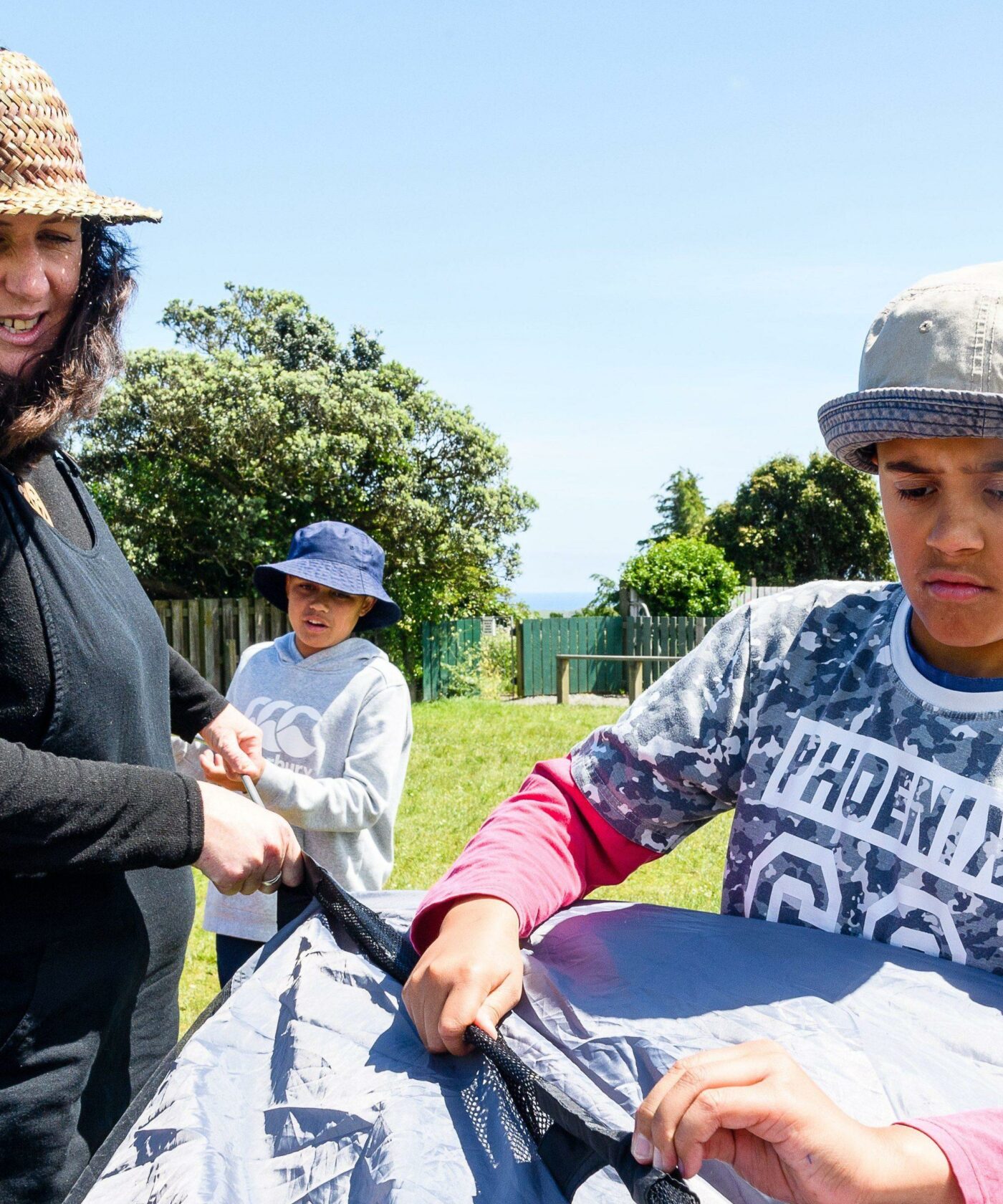
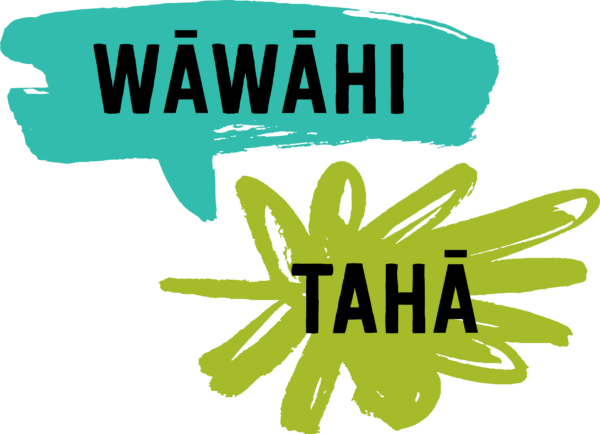
Wāwāhi Tahā | Time for Tamariki
We have unfinished business
In 2019, we took key steps towards a fairer, better resourced primary education sector. But there is still work to be done. But there is still work to be done.
If we are going to ensure that all tamariki in Aotearoa can reach their potential in primary schools and Kura Kaupapa Māori, fundamental changes to education must be implemented. We need a pathway to address staffing issues by 2030, starting now. It’s time for tamariki!
Why do we need this campaign?
Teachers love what they do but lack of funding means that they don’t have the support they need to make sure every child has access to quality education.
The model used to determine staffing levels has been in place for 25 years. The urgent need for fundamental changes was highlighted in the 2021 Pūaotanga report. The Wāwāhi Tahā campaign calls on the Ministry of Education to implement these changes and to take bold action to ensure that all children have the education they deserve.
- Address widespread understaffing. Allow teachers enough time to complete their work during work hours. Support teachers working with high needs students.
- Value teachers’ work. Recognise the importance of cultural skills.
- Better support for health and safety in schools. Provide job security for relievers.
Stories
“These paid union meetings will give us the chance to sit down and discuss how we can be the best teachers we can for our kids.”
"It’s not about us, It’s about the kids. They all deserve the best education."
“Realistically as a kaiako now, you’re wearing so many hats. We need time. We need more support. We need more teacher aides and staff to support kids with specialised needs.”
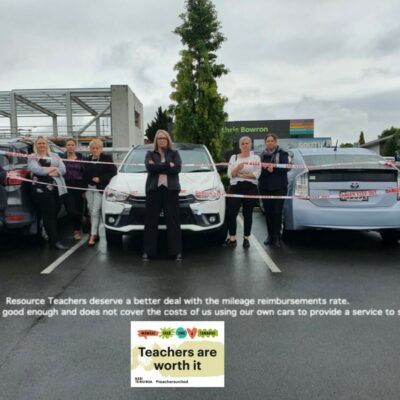
“I know of some of my colleagues who are considering taking out loans to buy more fuel efficient cars, like hybrids or EVs... It feels like what we’re doing is subsidising our own jobs.”
The end of February is looming large for Kelly McGowan.
That’s when the Government subsidy of 25 cents a litre for petrol is halved, before it is removed completely from March 31.
“The removal of the subsidy is going to negatively impact myself and my team to continue provide a quality service without subsidising from our own pockets the travel we do,” says Kelly, the Cluster Manager for the North Canterbury Resource Teacher Learning & Behaviour (RTLB) service.
“We spend a lot of time travelling between schools, using our own vehicles, so when that subsidy comes off, we will have another spike in our costs.
“We had asked for the mileage allowance to be increased in collective bargaining with the Ministry [of Education], but they did not come back with an offer on this.”
Kelly met with her local MP for Waimakariri, National’s Matt Doocey, just before Christmas to outline their concerns about the effects of the rising cost of living on the mileage allowance, alongside other issues like the disparities in the unit values between RTLBs employed by secondary and primary schools.
She says that part of the reason for the meeting was also to try and raise the profile of RTLBs as a workforce, which few people may know anything about.
RTLBs provide targeted or individual support for children with diverse learning and behaviour support needs. The RTLB workforce are required to complete specialist postgraduate qualifications and many proceed to pursuing a Masters degree.
There are about 1000 RTLBs across Aotearoa/New Zealand so they work across a multitude of schools. In some of the more rural areas, they can travel hundreds of kilometres each week, spending more than an hour to travel between schools. When using their own vehicles, some estimate that up to 80% of their travel each week is work related. Kelly says that some RTLBs can drive in excess of 20,000 kilometres for work each year.
“There’s not just a cost for the petrol, but also wear and tear on vehicles, maintenance and depreciation,” she says.
“I know of some of my colleagues who are considering taking out loans to buy more fuel efficient cars, like hybrids or EVs.
“They shouldn’t have to be considering that. It feels like what we’re doing is subsidising our own jobs.”
Kelly says increasing the mileage allowance from 62 cents/km may be considered “minor”, given the fact that “bigger” issues were raised in collective bargaining.
But, she says, it’s important for the people affected, especially given the level of inflation. And it would be a relatively low cost to the Ministry overall.
“We’re also not just trying to raise the consciousness of this issue for us, but for all teachers who are required to use their own vehicles to do their jobs,” she says.
“When you do the maths and people realise that it’s really impacting their lives. It’s a big deal.”
“These paid union meetings will give us the chance to sit down and discuss how we can be the best teachers we can for our kids.”
Birchville School teacher Teresa Salter is looking forward to next week’s online paid union meetings for a couple of reasons.
First, she says, it will give her and her colleagues from across the motu the opportunity to discuss in greater depth what they want from their collective employment agreement negotiations when they begin later this term.
Crucially, it will also give them the opportunity to discuss in depth what changes they would like to see to the system into the future – changes that have stemmed from recommendations in the Pūaotanga report and which form the basis for the Wāwāhi Tahā | Time 4 Tamariki campaign.
“They’re really important,” she says. “Everyone is just heads down at the moment and working hard to catch up from dealing with Covid-19 last term.
“But I think these paid union meetings will give us the chance to sit down and discuss how we can be the best teachers we can for our kids.
“We need to give them time to get that thrill of learning – and the Wāwāhi Tahā | Time 4 Tamariki campaign will help us start along the path to get the Pūaotanga recommendations implemented.”
Teresa’s school north of Upper Hutt has more than 130 students from a wide range of backgrounds, including some from families farming the upper reaches of the Hutt Valley in Wellington.
She teaches Years 1-3 in a collaborative space with another teacher and is lucky enough to have support from two teacher aides. Even then, however, she says they’re all stretched.
“You can’t engage every child when you’re dealing with more than 30 children in a single class,” she says. “You need to spend time with them and you need time with every child.
“We really do need to reduce the teacher-student ratios to build a deep and genuine connection with all of the tamariki in the class.”
Teresa was also particularly passionate about the need for greater support for children with high needs. She says the pressure of Covid-19 and alienation some tamariki have felt by isolation and lockdowns during the pandemic have exacerbated existing problems.
They also may have faced stress at home, with some families struggling financially as they lost their jobs over the last two years.
“We are stretched to meet their needs,” she says. “The pandemic has been really hard on tamariki, especially those who need the most help.
“I know it’s not an easy fix, but they do need to take a better look at the funding model for children with high needs because having more staffing for these children means they will be better served.”
Changes to the current funding for teacher aides would also be welcomed, she says, with their salaries paid from the school’s operations grants and not centrally funded like other professions.
“Teacher aides are valuable resources in a classroom and a massive help to reducing the work demands on teachers,” she says.
“At the end of the year when there’s not enough money left in the kete, schools really shouldn’t be forced to choose between toilet paper or teacher aides.”
While Teresa says she is hoping the paid union meetings will thrash out the issues the primary sector is facing, she has one further hope for this term – she’d like Education Minister Chris Hipkins (who is also the local MP) to drop by her school.
“I’d really just like him to sit in my class for a morning and see the reality of what it’s like nowadays,” she says. “You can’t experience that by reading a book or a report.
“You need to be there to see how the decisions he makes affect real life.”
"It’s not about us, It’s about the kids. They all deserve the best education."
Penny Sinclair has one overriding wish from the Government after a first term that was badly affected by Covid-19 – look at education long term and engage with the Wāwāhi Tahā | Time 4 Tamariki campaign.
Launched last term, Wāwāhi Tahā | Time 4 Tamariki focuses on reducing teacher/student ratios and the ever-increasing work demands placed upon teachers, as well as ensuring tamariki with greater educational needs get the specialised support they require.“It’s not about us,” she says. “It’s about the kids. They all deserve the best education and while we’re working as hard as we can to try to meet the needs of all our students, it’s awful to hear that some are falling through the cracks.“You take that personally.”She says while the campaign is a continuation of fixing long-standing issues in the education system it can also help solve social issues that can develop over time.“If we get it right with our kids when they start at school, it makes it easier for others as they get older.“We should be resourcing schools to shoot our students to the stars, and not arming society with the ambulance at the bottom of the hill.”“You can save a lot of money and effort in the long term by getting it right at the start.”Having been in the teaching profession for 35 years, she says the past two years dealing with Covid-19 have been the most harrowing she’s seen for students, especially last term at her school St Michael’s in the Lower Hutt suburb of Taita.
The majority of students were affected by Covid-19 enforced absences, either because they were infected or were a household contact and she says much of this term will be trying to catch up.“Last term was just months of rack and ruin,” she says. “We effectively lost 11 weeks. And that’s just continuing to add to the social and emotional challenges our children have been experiencing over the last two years.“I’m hoping that now we’re in term two, we can get some really serious teaching done.”While her chief concern is with her tamariki, she acknowledges that she is also worried about new and less experienced teachers.“It has really been a baptism by fire for them,” Penny says. “And I have real concerns about losing them to burnout if we don’t start to implement changes to the system now.“One big change required is we need to make sure that we get non-contact time to prepare properly and to come up with engaging programmes for our tamariki.“But that non-contact time for planning and assessing is not at 5.30 in the morning or 11.30 at night.”It’s why she says it’s imperative that teachers get behind Wāwāhi Tahā | Time 4 Tamariki and look to get involved – either through talking to parents or looking to engage their local MPs to drive the message home about why it’s important they change the system.“I’ve got a great group of kids at my school and fantastic dedicated colleagues. It’s possibly the best school I’ve worked at in my career,” Penny says. “And I want to make sure that we set our kids up for the future.“When kids achieve, we achieve. That’s what our job is about. It’s about ensuring these children become successful members of the community.”
“Realistically as a kaiako now, you’re wearing so many hats. We need time. We need more support. We need more teacher aides and staff to support kids with specialised needs.”
Inglewood Primary School’s Rob Wheatley left a “seriously lucrative” sales career to retrain as a teacher at the age of 30 but there’s nothing else he’d rather be doing right now – even in the middle of a “totally disrupted” school year because of Covid-19.
Apart from loving his “rock star job”, Rob says there is a lot of hope on the horizon with the launch of the Wāwāhi Taha | Time for Tamariki campaign at the end of last term with its focus on starting to make the changes needed to ensure that tamariki get the education he wants to give them.
“I’m so passionate about being a teacher. I really love seeing these children learn and engage and grow. I think that teaching is the most important and most brilliant profession in the world.
“But there are some real long-standing issues that we face around teacher/student ratios and the ever-increasing work demands. We’re just not getting the time we need to really develop our tamariki – and that’s what I want to see change.”
Rob says one of the things that really spoke to him about Wāwāhi Taha | Time for Tamariki was how much its emphasis was on his students and finding space to be the best teacher he can be for them.
“Realistically as a kaiako now, you’re wearing so many hats. We need time. We need more support. We need more teacher aides and staff to support kids with specialised needs. We really need the recommendations of last year’s Pūaotanga report to be looked at seriously by the Government.”
One of the most difficult issues for him because of the increased work demands over the last few years means he has noticed his own health and wellbeing are now last in his order of priorities – something many of his colleagues are also saying.
“My family always comes first. Then my work and students and finally myself. That’s not healthy.
“But I do get help. I try to make sure that I’m open and honest about counselling services. I think all teachers should be doing it. We do a lot and we take it home. The kids are always on my mind. I’m always thinking about how I can teach them better.
“To do it really well and take care of yourself there’s not enough hours in the day.”
Like many others, his family has been impacted by Covid-19 over the last two years. It meant he had to watch the Wāwāhi Taha | Time for Tamariki campaign launch video at home.
But he has been speaking with colleagues over the holidays and he says the enthusiasm to get started this term is starting to simmer nicely, with PUMs scheduled for this term and the ability to engage with local MPs and communities.
“There is a real feeling that this is the beginning of something. There is a feeling of excitement and anticipation. We know that we need to get things done.
“We also know that Wāwāhi Taha | Time for Tamariki is just the first step in a long process. Things aren’t going to happen immediately and the changes we all want to see in education are going to take time.
“But what I have noticed is that a lot of my colleagues are really passionate about making positive change for future generations.
“We know that by working together we can change things for the better, and it’s time we did it again.”
Wāwāhi Tahā | Time for Tamariki tuhinga e pa ana
Join the Wāwāhi Tāha Campaign
Be a part of ensuring our kaiako have enough time for our tamariki.
Join the Wāwāhi Tāha Campaign
Be a part of ensuring our kaiako have enough time for our tamariki.
Related campaigns
Take a look at our current campaigns and find out how you can get involved.
Initial Teacher Education 2040
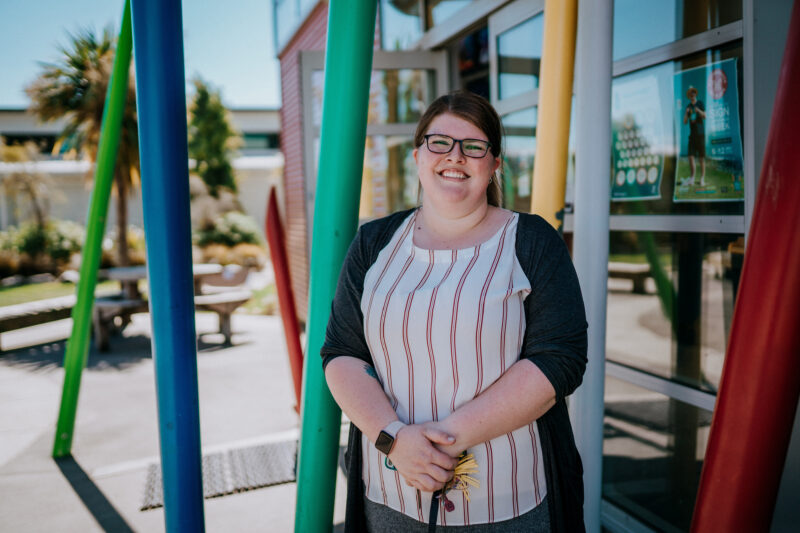

-
Kaiako Kura
-
Whare Kōhungahunga
-
ITE2040
Initial Teacher Education (ITE) plays a vital role in our education system, preparing future teachers with the knowledge and skills they need to begin teaching.
Pūaotanga Report 2021
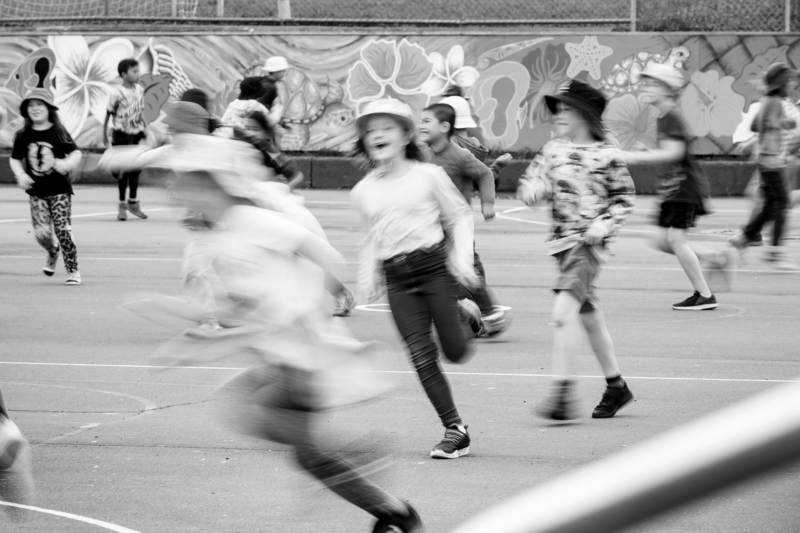

-
Kaiako Kura
-
Tumuaki
-
Pūaotanga
The Pūaotanga Repoet was an independent review of staffing in primary schools which paints a dire picture of our schools.
Te Kupenga Rangitahi | New Educators Network
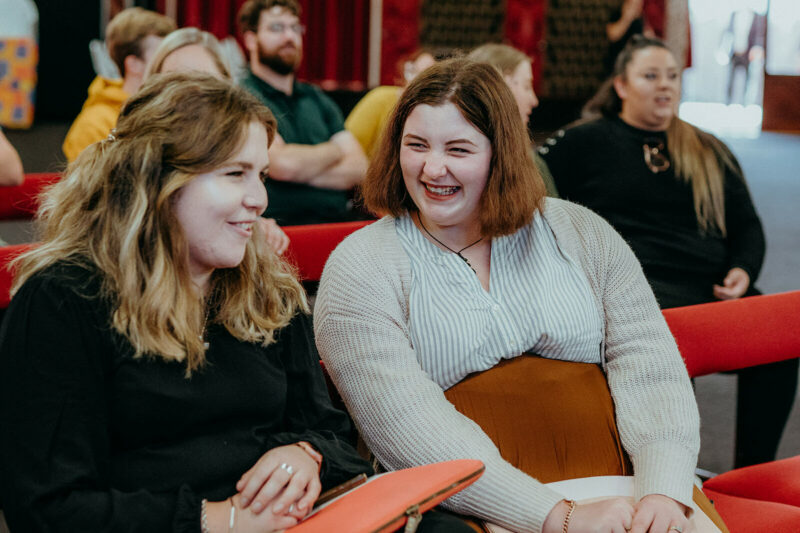
-
Kaiako Kura
-
Whare Kōhungahunga
-
Te Ākonga me Ngā Kaiako Hou
-
Te Kupenga Rangatahi
Studying to become an educator? In your first 5 years of teaching? Te Kupenga Rangatahi (New Educators Network) is a great way to make sure you get the best start to your teaching career.
David J. Stewart Memorial Scholarship

-
All sectors
-
David Stewart Memorial Scholarship
David Stewart was a primary school principal, an academic, a researcher, education centre director and the author of several books. He initiated and developed Te Ariki Project, a professional development programme for school principals.